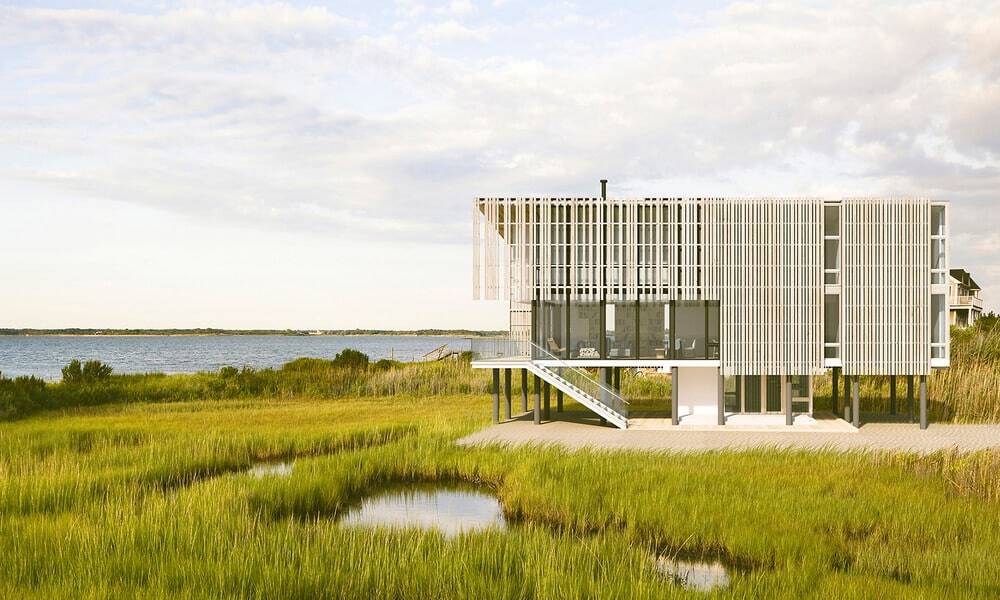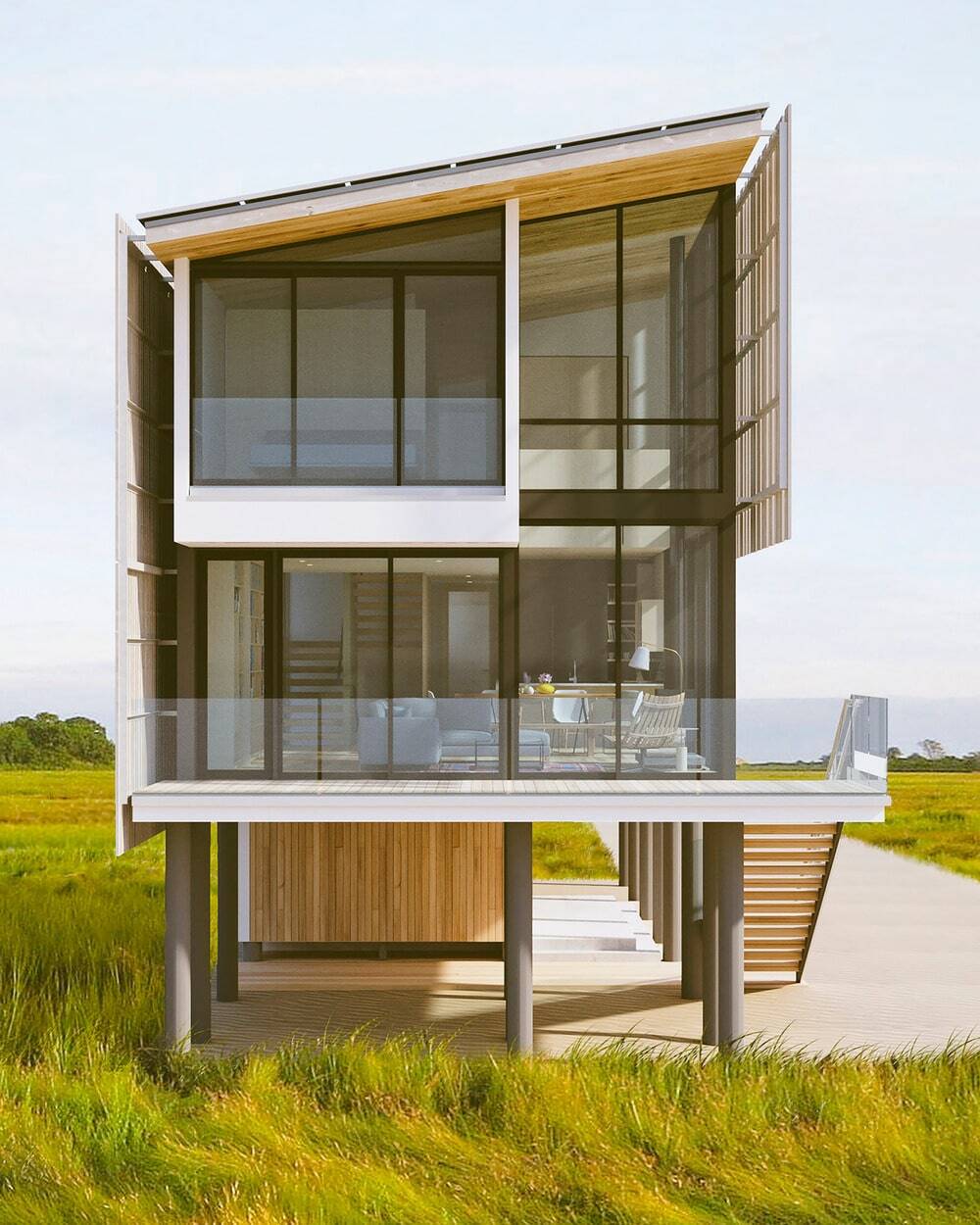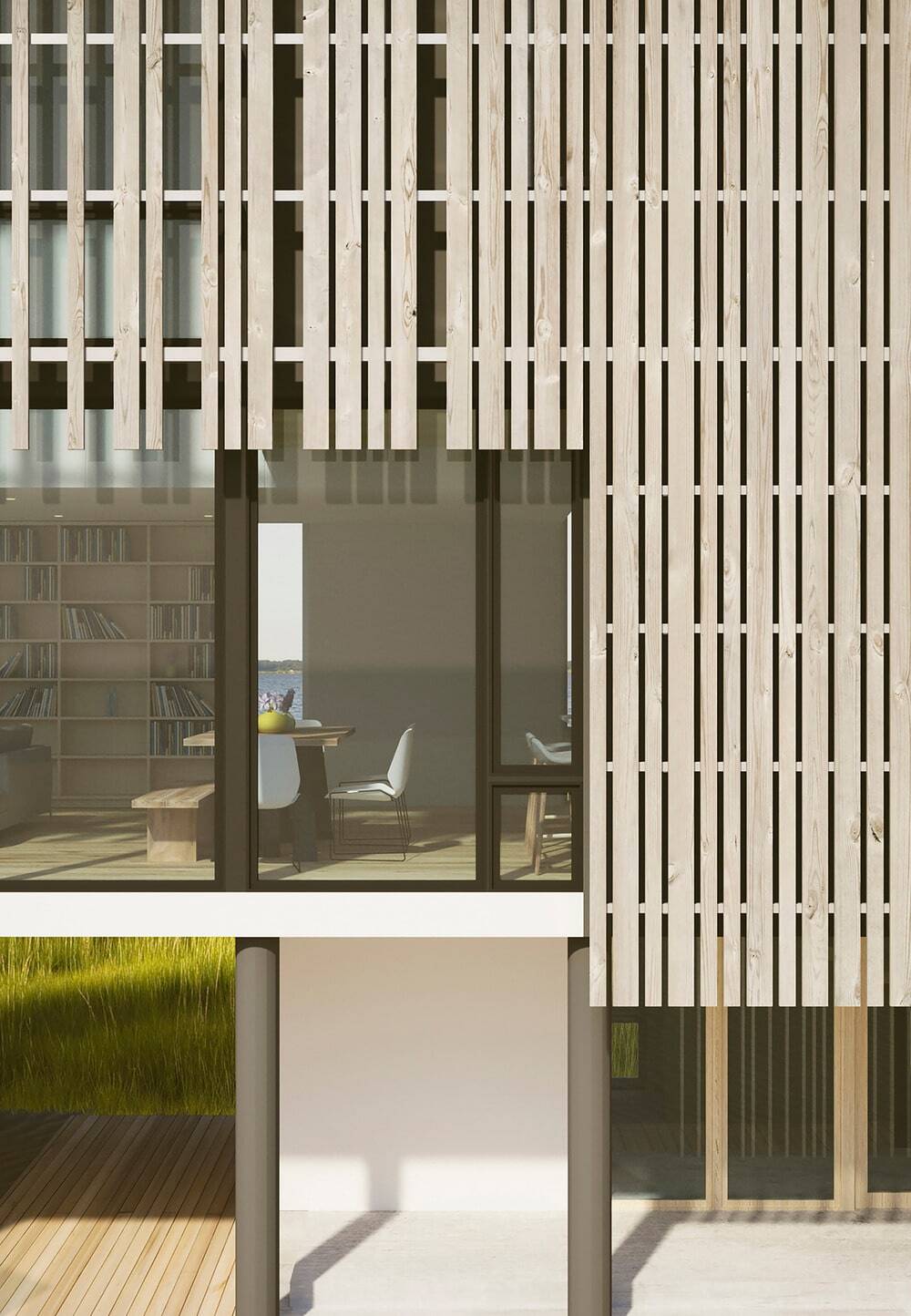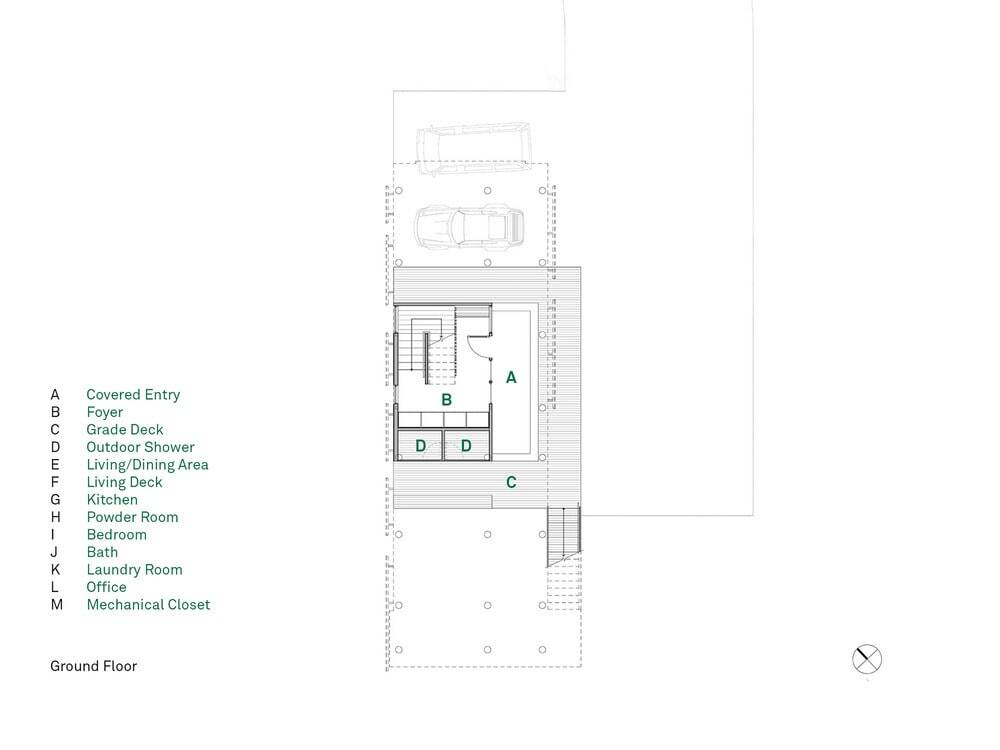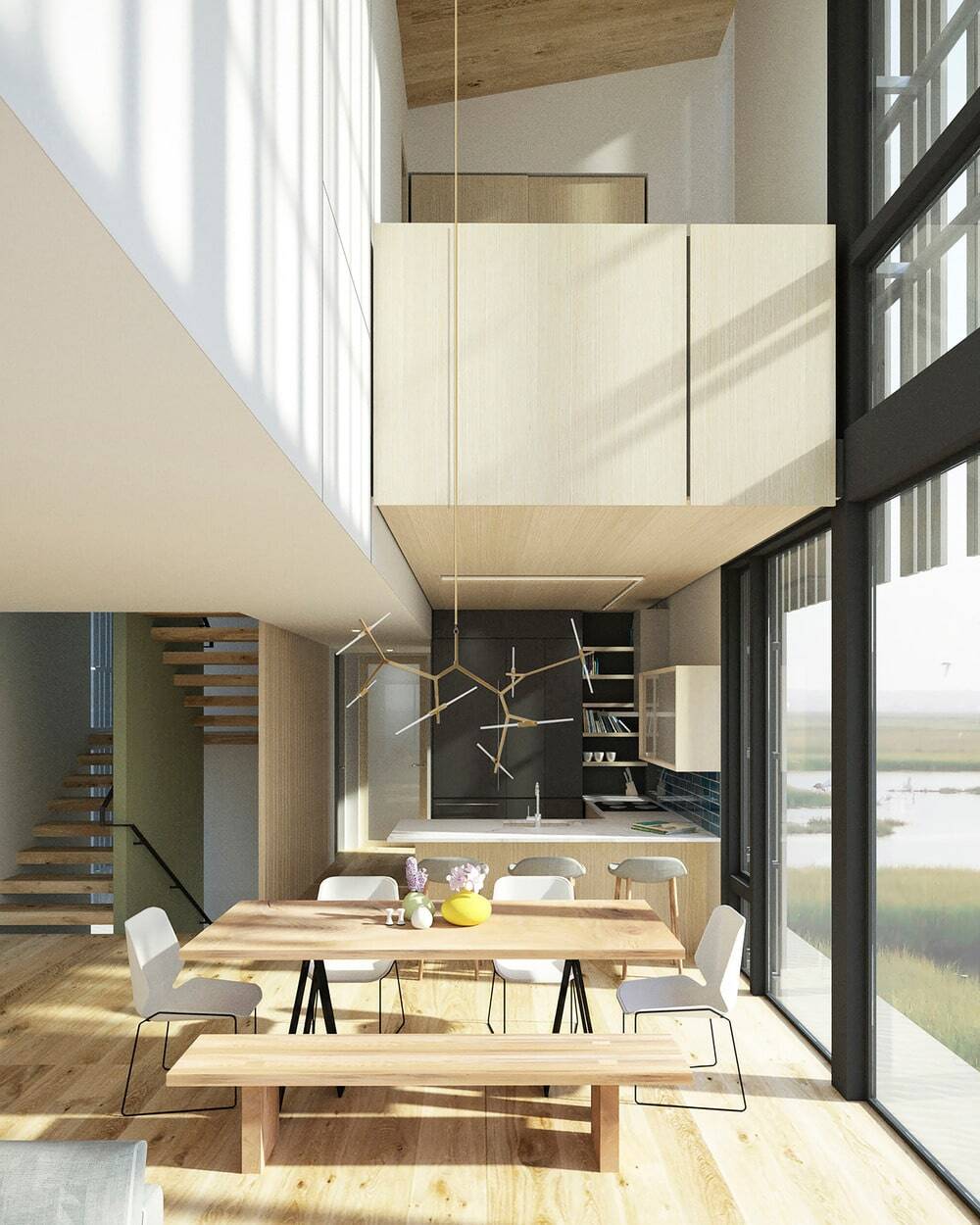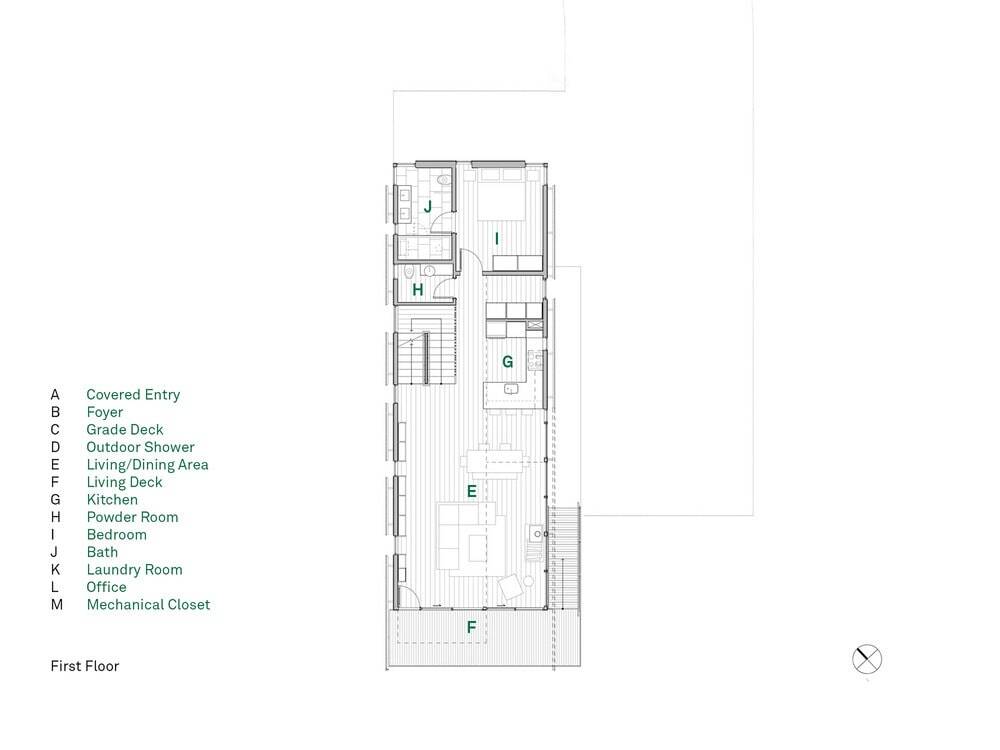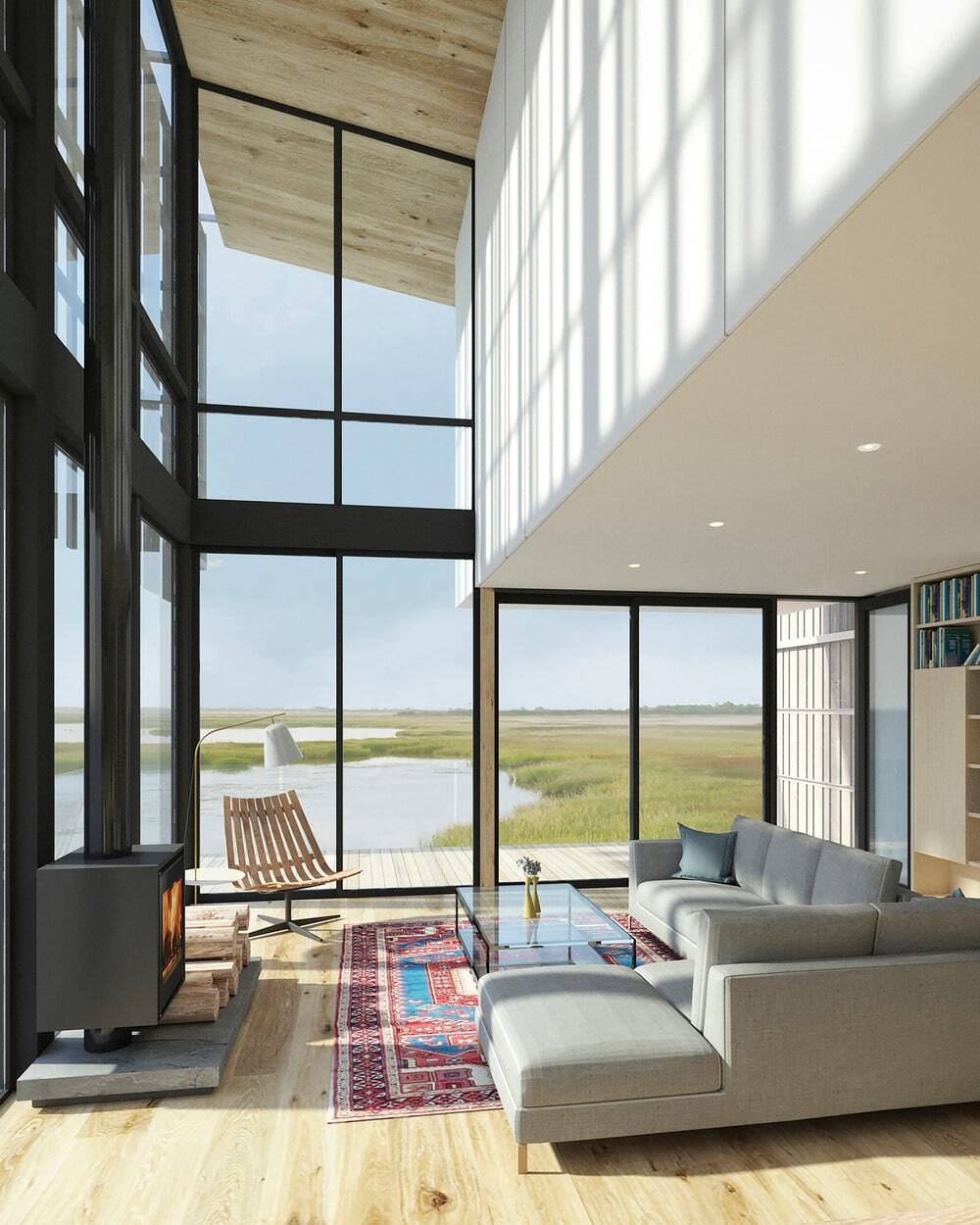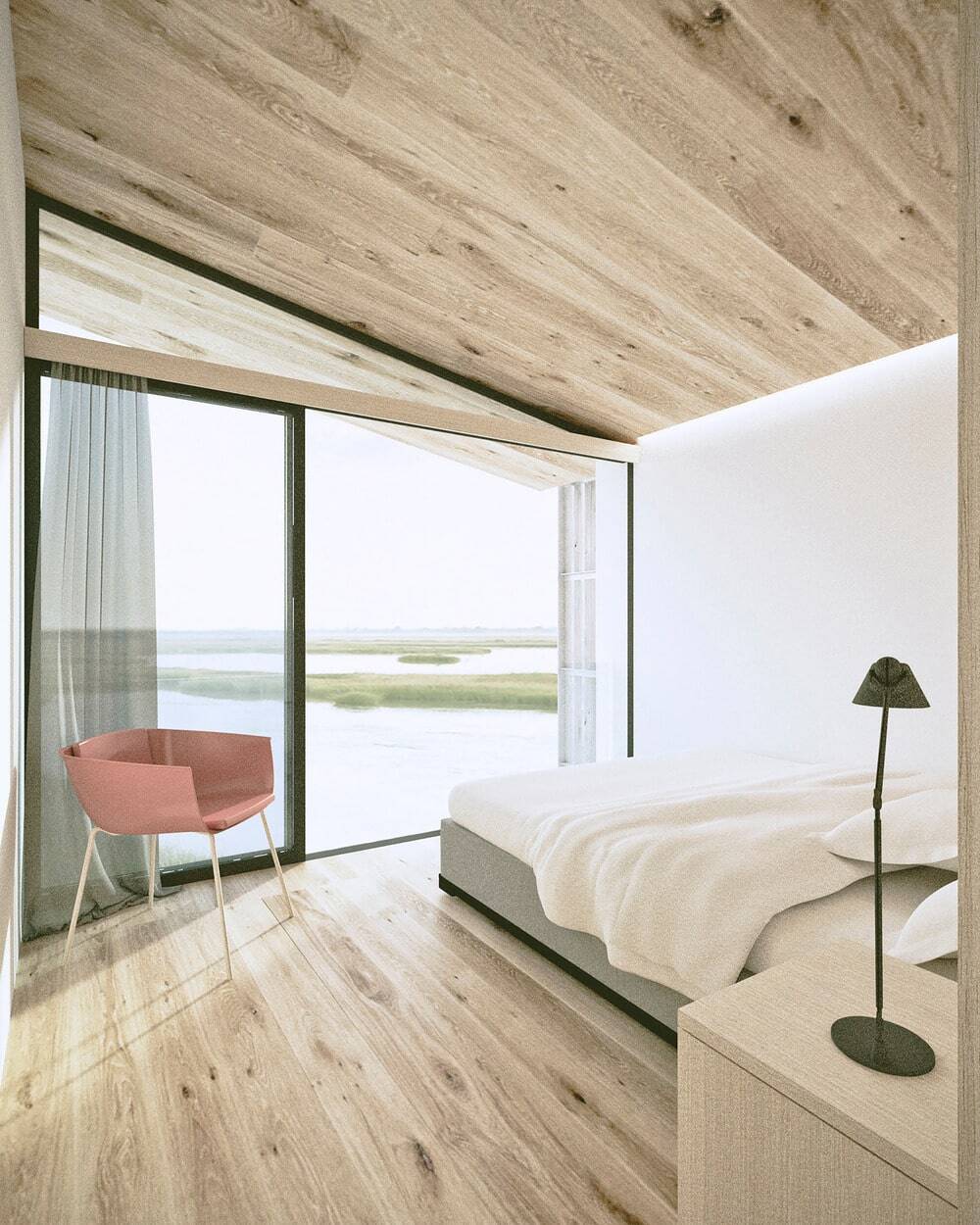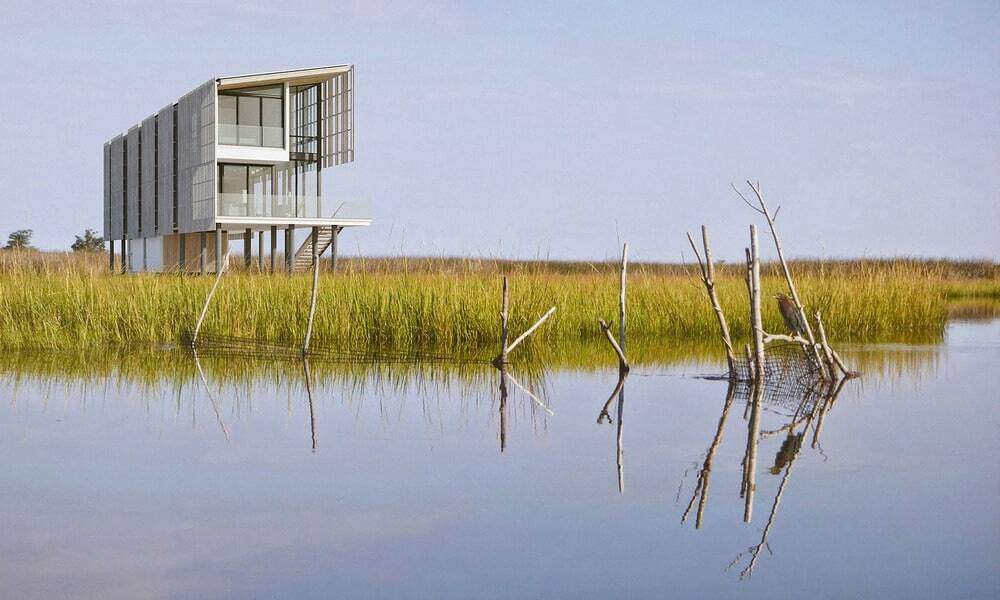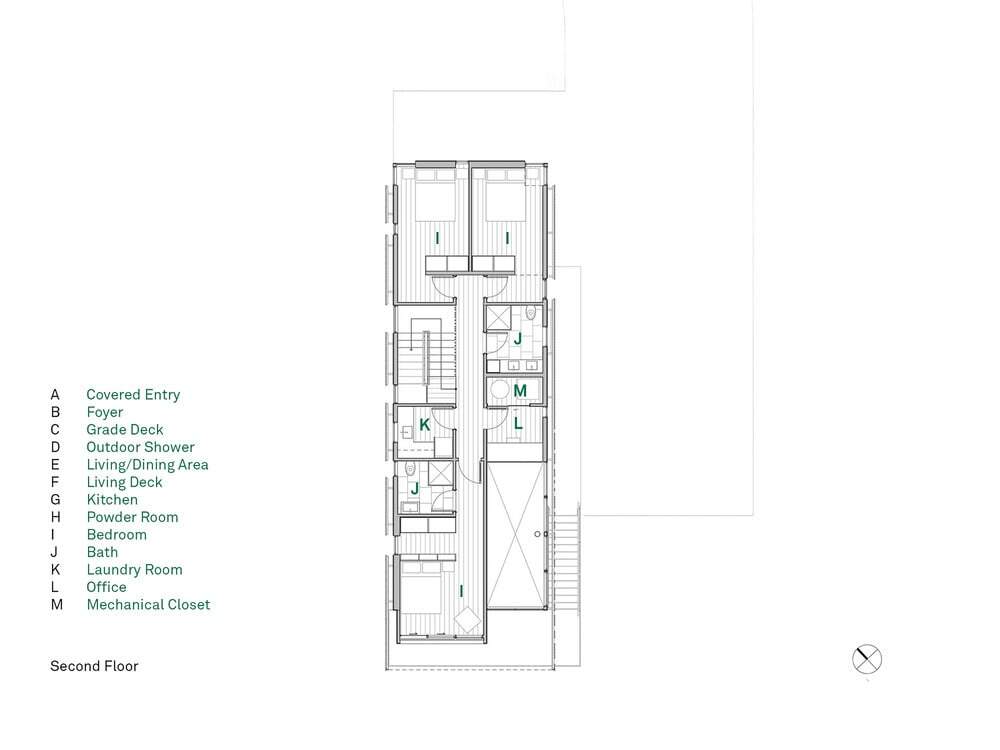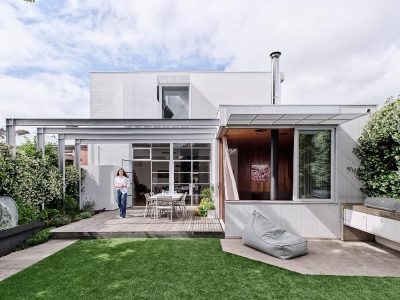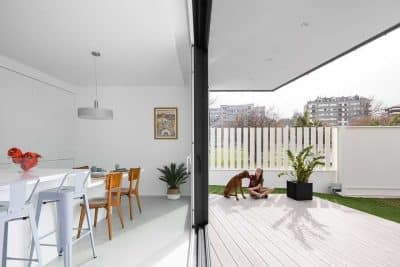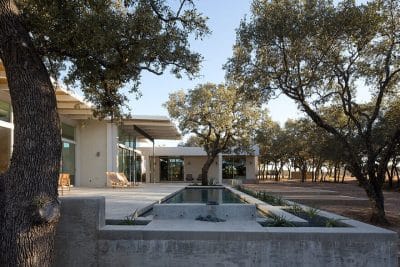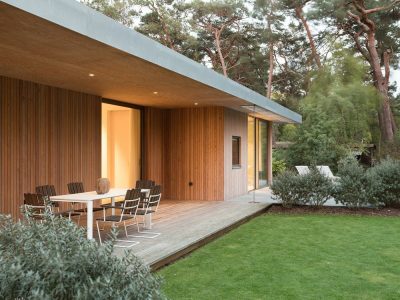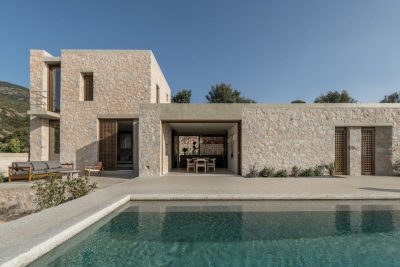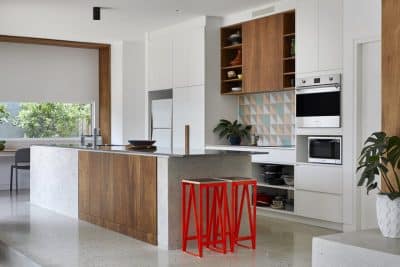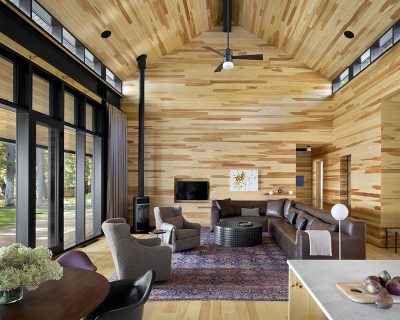Project: The Salt Box Residence
Architects: Parnagian Architects LLC
Author: Brian Parnagian, AIA
Location: Mantoloking, New Jersey, United States
Courtesy of Parnagian Architects
The Salt Box Residence is a 2,400 square foot home sited in the low-lying, flood-prone salt marshes of New Jersey’s Barnegat Bay. The client’s brief was to design a lasting replacement for a multi-generational family home that had been damaged beyond repair during Hurricane Sandy. The site is situated at the end of a small peninsula, bound directly to the west by a commercial shipyard and marina, and to the north, south, and east by expansive views of the Barnegat Bay.
Constrained by local ordinance to the existing footprint of the previous home, Salt Box takes on a narrow, rectilinear form. Slight internal shifts in plan and volume create spaces for both retreat and gathering. A patterned rain screen, composed of alternating width Atlantic White Cedar boards, cloaks the exterior. The cedar weathers to a natural grey, a subtle design move to give it the appearance of having always been there.
An open living, dining, and kitchen area is considered as an “outdoor room”, with a double-height volume and floor-to-ceiling glass inviting inhabitants into the landscape. A small study perched above from the second floor looks out into the space below and views beyond. Variations in the porosity of the rain screen create a lively play of interior light and shadow throughout the day, while mitigating solar heat gain across the entire building envelope. The “outdoor room” serves as a shady refuge within the vast salt marsh landscape. A free-standing wood burning fireplace sits prominently within the space. The exterior cedar soffit permeates through to the interior, forming a continuous ceiling lining. White Oak flooring and joinery, and white painted cement board and plasterboard, compose the majority of the interior material palette. An array of photo-voltaic panels at the roof level provides electricity for the home, taking advantage of the gently sloping planar roof surface and abundant southwesterly sun exposure.
“The building sits very nicely in its environment. Its use of a screen wall as an organizing element is very successful. It is well proportioned. Materials are modestly deployed. The jurors would like to have this beach house.” – 2018 AIA-NJ Chapter Design Competition Jury

